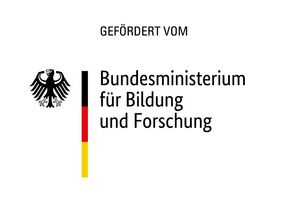Kontakt
Prof. Dr. Gundula Zoch
Institut für Sozialwissenschaften (» Postanschrift)
Forschung
Forschungsschwerpunkte
- Soziale Ungleichheiten im Lebensverlauf
- Bildung im Lebensverlauf, insb. frühkindliche Bildung und Lernen im Erwachsenenalter
- Arbeitsmarkt und Digitalisierung
- Einflüsse institutioneller Rahmenbedingungen
- Vereinbarkeit von Beruf und Familie
- Intergenerationale Transmission von Ungleichheiten
- Entstehung und Veränderungen von Einstellungen
- Quantitative Methoden
Aktuelle Forschungsprojekte
Post-Covid Neurocognition – Monitoring and modelling post-COVID neurocognitive symptom trajectories, determinants and long-term impact on life and work
Die Covid-19-Pandemie stellte die Gesellschaft nicht nur vor soziale und politische Herausforderungen, sondern auch vor eine Belastungsprobe für die Gesundheit der Bevölkerung. Neben den unmittelbaren Auswirkungen auf die Gesundheit, berichten viele Betroffene von anhaltender Müdigkeit und Schwierigkeiten bei der Konzentration und dem Gedächtnis – Symptome, die als „Long Covid“ bekannt sind. Diese Langzeitsymptome können das Leben der Betroffenen erheblich beeinträchtigen. Im interdisziplinären Verbundprojekt „Post-Covid Neurocognition – Monitoring and modelling post-COVID neurocognitive symptom trajectories, determinants and long-term impact on life and work” untersuchen Wissenschaftlerinnen der Universitäten Oldenburg und Hannover gemeinsam die Langzeitsymptome und Folgen der Pandemie. Dafür werden unter anderem auch Prognose-Modelle trainiert, mit denen Langzeitsymptome besser diagnostiziert und behandelt werden sollen. Das Projekt ist Teil des COVID-19-Forschungsnetzwerkes Niedersachsen (COFONI) und wird mit 650.000€ durch das Niedersächsische Ministerium für Wissenschaft und Kultur gefördert (Leitung Prof. Dr. Mandy Roheger und Prof. Dr. Antje Wulff, Universität Oldenburg).
Im Rahmen des Projektes untersucht die AG Soziale Ungleichheiten unter Leitung von Prof. Dr. Gundula Zoch die Bedeutung ungleicher Arbeits- und Lebensbedingungen für das Infektionsrisiko und mögliche Langzeitsymptome sowie die sozialen Folgen für die Betroffenen. Ziel des Projektes ist es, zu verstehen, wie soziale Faktoren die Langzeitfolgen von Covid-19 beeinflussen, um geeignete Maßnahmen zur verbesserten Versorgung und Unterstützung von Long-Covid-Patienten abzuleiten.
Principal Investigators: Mandy Roheger und Antje Wulff
Finanzierung: COVID-19-Forschungsnetzwerk Niedersachsen (COFONI)
Laufzeit: 1.7.2023 – 31.12.2025
PEPP-COV – Politische Einstellungen und politische Partizipation in Folge der Covid-19 Pandemie
Die Corona-Pandemie hat das soziale, ökonomische, politische und kulturelle Leben stark verändert und die Menschen in Deutschland vor große individuelle und gesellschaftliche Herausforderungen gestellt. Dabei zeichnet sich eine weiter zunehmende politische Spaltung der Gesellschaft ab, die unter anderem zum Erfolg populistischer Parteien und neuer Protestbewegungen beiträgt. Diese weitere Fragmentierung der (digitalen) Öffentlichkeit stellt Politik und Gesellschaft vor grundlegende Legitimations- und Aushandlungsprobleme. Inwiefern und in welchen sozialen Gruppen die Pandemie politische Einstellungen und damit verbundene gesellschaftliche und politische Partizipation nachhaltig verändert hat, konnte bisher nicht zuverlässig beantwortet werden, weil geeignete Daten auf Basis von Wiederholungsbefragungen bislang nicht verfügbar waren. Das Forschungsprojekt schließt diese Lücke und untersucht mit Längsschnittdaten mehrerer Teilstudien des Nationalen Bildungspanels (NEPS) sowie vertiefenden qualitativen Fokusgruppeninterviews, wie und in welchen Kontexten sich politische Einstellungen und damit verbunden gesellschaftliche und politische Partizipation mittel- und langfristig verändern und welche sozialen und regionalen Disparitäten dabei wirksam sind. Im Zentrum des Vorhabens steht die Frage, welche Bildungsverläufe und erworbenen Kompetenzen mit den wachsenden sozialen Ungleichheiten in der Corona-Pandemie zusammenhängen und so die Veränderung politischer Einstellungen und Bewertungen sowie gesellschaftlicher und politischer Partizipation beeinflussen.
Teilprojekt 1 „Quantitative Analysen mit dem NEPS“
Universität Oldenburg / LIfBi – Leibniz-Institut für Bildungsverläufe e.V.
Prof. Dr. Gundula Zoch
Teilprojekt 2 „Durchführung und Auswertung von Fokusgruppen“
Universität Leipzig / EFBI – Else-Frenkel-Brunswik-Institut für Demokratieforschung
Dr. Johannes Kiess
Die Rolle lokaler Arbeitsmärkte und Merkmale des Arbeitsplatzes von Müttern für die kindliche Entwicklung (WorkMum)
Die Erwerbstätigkeit von Müttern ist in vielen Industrieländern deutlich gestiegen, so dass sich das Familienleben und das Umfeld, in dem Kinder aufwachsen, mit der Zeit verändert hat. Die Vereinbarkeit von Beruf und Familie variiert dabei erheblich mit den Beschäftigungsbedingungen, z.B. in verschiedenen Berufen, Arbeitsplätzen, Regionen und nach sozialen Gruppen. Daraus können sich deutliche Unterschiede in der frühen Lernumgebung von Kindern ergeben, welche eine Schlüsselrolle für sozioökonomische Unterschiede in der frühen Entwicklung, aber auch im weiteren Lebensverlauf haben. Empirisch wurde mit geeigneten Daten bisher jedoch kaum untersucht, inwiefern die Arbeitsmarktbedingungen und Merkmale des Arbeitsplatzes der Mutter das Familienleben, die Lernumgebung von Kindern und ihre Entwicklung beeinflussen. Das vorgeschlagene Forschungsprojekt untersucht, wie Beschäftigungsmerkmale von Müttern die kognitive und nicht-kognitive Entwicklung von Kindern in den ersten zehn Lebensjahren beeinflussen. Wir kombinieren soziologische und ökonomische Perspektiven und untersuchen aus einer dezidierten Längsschnittperspektive (1) die Rolle des lokalen, makroökonomischen Arbeitsmarktes für mütterliche Erwerbstätigkeit und die kindliche Entwicklung; (2) Faktoren, die zur Familienfreundlichkeit von Arbeitsplätzen beitragen, und deren Relevanz für die Entwicklung von Kindern. Merkmale des Arbeitsmarkts und des Arbeitsplatzes haben auch während der Covid-19-Pandemie die Vereinbarkeit von Berufs- und Familienarbeit beeinflusst. Wir untersuchen daher auch, ob (3) Unterschiede in den Merkmalen des mütterlichen Arbeitsplatzes und lokalen Arbeitsmarktbedingungen zu Ungleichheiten in der Entwicklung von Kindern während der Covid-19-Pandemie geführt haben. Im Rahmen dieser Forschungsagenda werden mögliche Mechanismen des Zusammenhangs empirisch detailliert untersucht. Wir fokussieren auf Deutschland, wo familienpolitische Maßnahmen den frühen Wiedereinstieg von Müttern gezielt gefördert haben, und die Erwerbsbeteiligung substantiell gestiegen ist.Um diese Fragen zu beantworten, analysieren wir mit fortgeschrittenen Regressionstechniken und Verfahren der Kausalitätsanalyse die innovativen Längsschnittdaten des Nationalen Bildungspanels (NEPS-SC1-ADIAB). Diese vereinen detaillierte Informationen zum Familienleben, qualitativ hochwertige Maße zur Entwicklung von Kindern, und die administrativen Erwerbsbiografien der Mütter des IAB. Diese Daten reichern wir mit (a) selbst generierten Daten lokaler Arbeitsmärkte basierend auf administrativen Beschäftigungsdaten, (b) Informationen zu Audits für familienfreundliche Betriebe, (c) einem berufsbasierten Telearbeits-Index und (d) Informationen zu regionalen Bedingungen der Kinderbetreuung an. Mit diesen Daten bietet sich die besondere Gelegenheit, neue Erkenntnisse über die Auswirkungen der Beschäftigungsbedingungen von Müttern auf der Makro- und Mikroebene zu gewinnen, die bislang kaum berücksichtigt wurden.
Principal Investigators: Gundula Zoch und Mathias Huebener (BiB)
Finanzierung: DFG
Laufzeit: 2022-2025
Erhebung von „Verschwörungsmentalität” & „politische Deprivation” im Nationalen Bildungspanel (NEPS)
Die Gegenwart ist von zunehmender gesellschaftlicher Polarisierung geprägt, die unter anderem zum Erfolg populistischer Parteien und neuer Protestbewegungen beiträgt. Insbesondere die Verbreitung von Verschwörungserzählungen und Fake-News sowie die weitere Fragmentierung der (digitalen) Öffentlichkeit stellen Politik und Gesellschaft vor grundlegende Legitimations- und Aushandlungsprobleme. Der soziologischen und sozialpsychologischen Untersuchung von politischen Einstellungen und der damit verbundenen politischen Partizipation kommt daher eine besondere wissenschaftliche und gesellschaftliche Relevanz zu. Vor allem populistische, verschwörungsaffine und autoritäre Einstellungen haben an gesellschaftlicher Bedeutung gewonnen. Sie gehen sehr häufig mit einer generellen Unzufriedenheit oder Ablehnung der Demokratie sowie der Abwertung Anderer einher. Vor dem Hintergrund aktueller Trends und Herausforderungen stellt sich daher die Frage, wie und in welchem Kontext die genannten politischen Einstellungen und Bewertungen entstehen, welche sozialen Disparitäten bei ihrer Herausbildung wirksam sind und wie sie die politische und gesellschaftliche Partizipation prägen. Im Zentrum des Vorhabens steht die Frage, welche Bildungsverläufe und erworbenen Kompetenzen mit der Veränderung von politischen Einstellungen und Bewertungen zusammenhängen.
Principal Investigators: Gundula Zoch (zusammen mit Johannes Kiess, Else-Frenkel-Brunswik-Institut für Demokratieforschung/Universität Leipzig)
Finanzierung: CfM des Nationalen Bildungspanel/Leibniz-Institut für Bildungsverläufe
Laufzeit: 2021-2025
Effects of the Corona pandemic on job-related learning in adult life
The Corona pandemic has affected learning participation, processes, and outcomes across the world. However, most recent research has focused heavily on children and adolescents in initial education. Conversely, the question of how the pandemic has affected learning in adult age, particularly job-related adult education and training (AET), has been largely neglected in public discourse and research. The Corona pandemic has profoundly changed the supply and demand for adult education in a short period of time. Traditional AET in the form of on-site courses has largely collapsed, and many firms have reduced their investment in training. At the same time, new opportunities for professional learning have emerged for some groups of employees due to short-time work, while others had less time because they had to care for their children when working from home. Finally, the crisis led to accelerated digitization, which has created the need for many employees to learn new things quickly. By analysing rich panel data from the National Educational Panel Study (adult cohort), the project will provide evidence on how the pandemic has affected participation in different forms of AET, which learning barriers and opportunities the crisis brought, and how this has changed patterns of social inequality in AET. Since AET will be a key component in mitigating pandemic-related distortions in the labour market, it is important to answer these questions soon in order to derive targeted adult education strategies.
Principal Investigators: Corinna Kleinert (LIfBi)
Co-Investigator: Gundula Zoch
Finanzierung: DFG
Laufzeit: 2022-2023
Abgeschlossene Forschungsprojekte
Effects of employment insecurity and job loss on children’s development
The project investigates how children's early development - as an important basis for further skill acquisition and educational success - is affected by job insecurity or the loss of the mother's job. The focus is on the extent to which labor market disruptions affect the mother's employment biography, mental well-being, and child development at different stages of early childhood in the short and medium term. The project uses data from the National Educational Panel Study (NEPS, Start Cohort 1). The project will provide new insights into the mechanisms of intergenerational transmission of social inequality. Against the backdrop of the emerging global negative effects of the Corona crisis on labor markets and working conditions, the question of the impact of families' occupational insecurities on child development is of particular relevance.
Principal Investigators: Gundula Zoch (zusammen mit Corinna Frodermann (IAB) und Mathias Huebener (DIW Berlin))
Finanzierung: Leibniz-Forschungsnetzwerk Bildungspotenziale (LERN)
Laufzeit: 1. Oktober 2020 – 1. Oktober 2021


